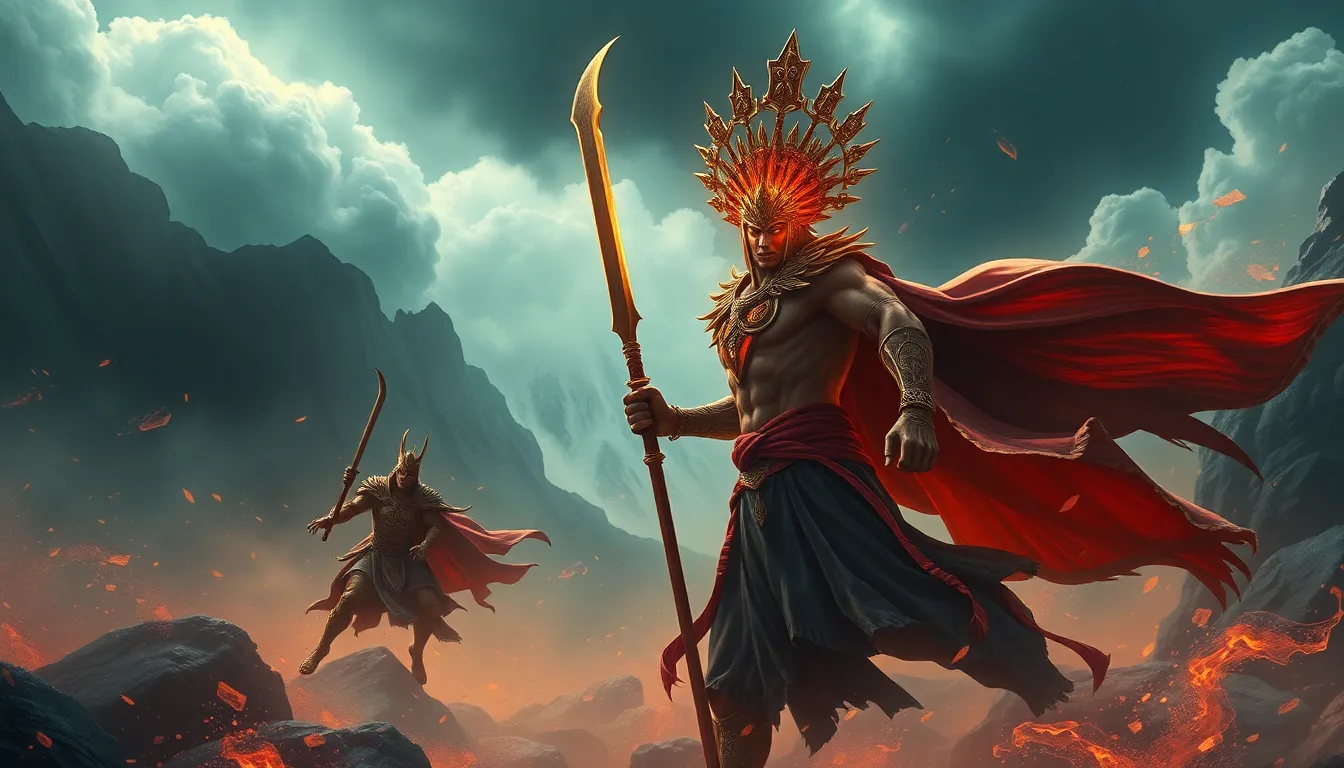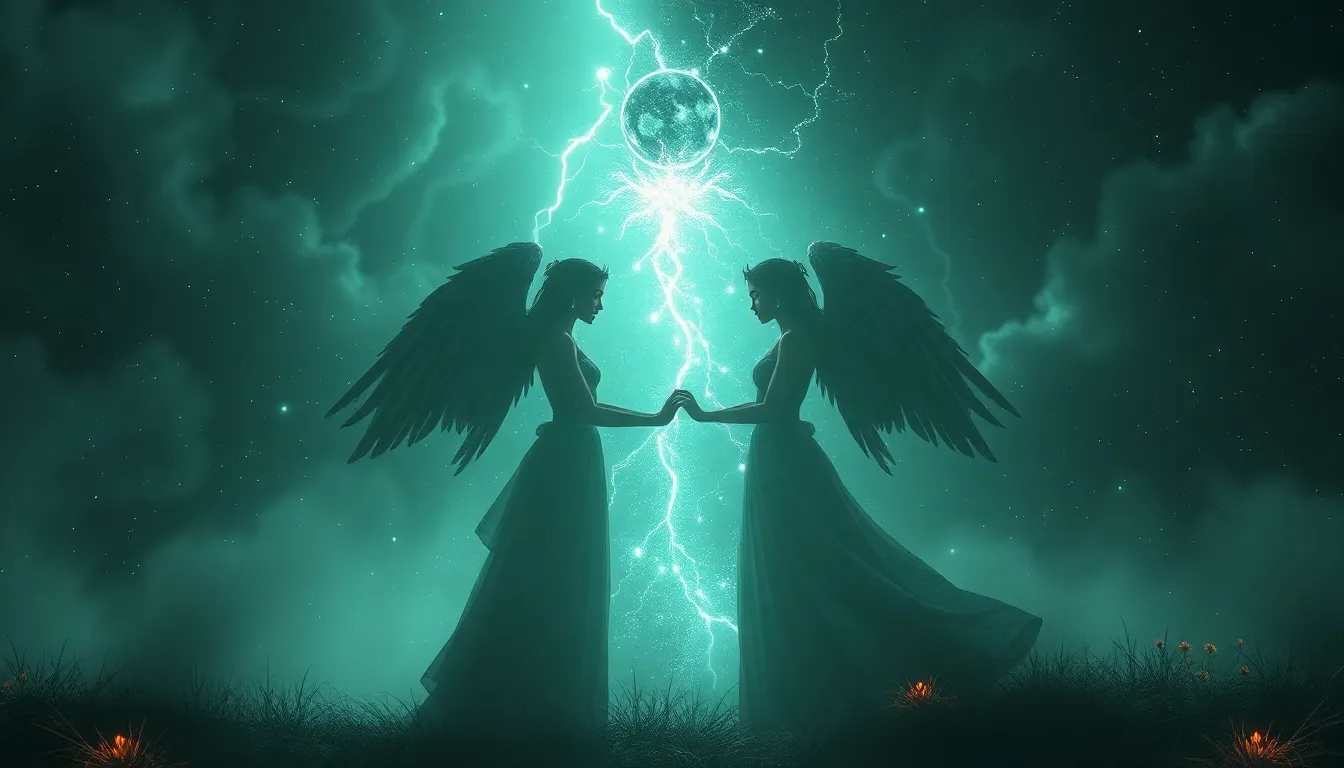Cultural Heroes: The Myths That Inspire Courage
1. Introduction to Cultural Heroes
Cultural heroes are individuals or figures that embody the values and ideals of a society, often represented in myths and stories passed down through generations. They serve as symbols of hope, bravery, and resilience, inspiring individuals to strive for greatness in the face of adversity.
The role of myths in shaping societal values cannot be overstated. They provide frameworks through which communities understand their history, morality, and behavioral expectations. This article focuses on the concept of courage, exploring how cultural heroes and their associated myths motivate individuals to act bravely in their lives.
2. The Psychology of Heroism
Understanding what makes a hero involves delving into the psychological traits that define courage. Heroes often exhibit qualities such as:
- Selflessness
- Empathy
- Resilience
- Integrity
These traits foster a sense of moral duty and the willingness to confront danger or injustice. Myths play a crucial role in influencing our perception of heroism, often glorifying certain attributes that society values while downplaying others. This shaping of hero narratives can lead to a more profound understanding of what it means to be courageous.
3. Historical Context of Cultural Heroes
Throughout history, cultural heroes have emerged in various civilizations, reflecting the values and challenges of their times. For instance:
- In ancient Greece, heroes like Hercules represented strength and perseverance.
- In Mesopotamia, Gilgamesh symbolized the quest for immortality and wisdom.
- In India, Arjuna from the Mahabharata showcased moral dilemmas and valor on the battlefield.
The evolution of the hero archetype over time reveals much about societal changes. As cultures adapt and grow, so do their heroes, reflecting new values and challenges while retaining core themes of bravery and sacrifice.
4. Mythological Heroes from Around the World
Prominent mythological heroes from various cultures share common themes of bravery and sacrifice. For example:
- Hercules: Known for his strength and twelve labors, he exemplifies the struggle against insurmountable odds.
- Gilgamesh: His epic journey explores themes of friendship and the search for meaning in life.
- Arjuna: A warrior prince faced with moral dilemmas, he represents the courage to uphold righteousness.
The cultural significance of these heroes is profound, as they resonate with the values and aspirations of their respective societies, providing a blueprint for courage and heroism.
5. Modern-Day Cultural Icons as Heroes
In contemporary society, various figures are viewed as heroes, including activists, leaders, and athletes. These individuals often embody the qualities of courage and resilience, inspiring others through their actions. Examples include:
- Malala Yousafzai: Advocating for girls’ education despite facing life-threatening adversity.
- Nelson Mandela: His fight against apartheid showcased extraordinary courage and commitment to justice.
- Serena Williams: Challenging norms in sports and advocating for equality and representation.
The impact of media in shaping modern hero narratives is significant. Through storytelling, these figures become symbols of courage and inspire communities to strive for change.
6. The Role of Storytelling in Hero Myths
Narratives play a crucial role in transmitting cultural values and inspiring courage. Storytelling allows societies to pass down lessons learned from heroic figures, ensuring that their legacies endure. The use of allegory and metaphor in hero myths encapsulates complex truths about human experience, making them relatable across generations.
Through storytelling, individuals and communities can find strength and motivation, as these narratives often highlight the importance of courage in overcoming adversity.
7. Courage in the Face of Adversity
Many myths illustrate the theme of courage against overwhelming odds. Heroes like David from the biblical story of David and Goliath exemplify resilience, showing that even the smallest can triumph against giants. Case studies of specific heroes reveal deeper lessons:
- Rosa Parks: Her refusal to give up her bus seat sparked a movement for civil rights.
- Malala Yousafzai: Surviving an assassination attempt, she became a global advocate for education.
These stories impart valuable lessons applicable to modern challenges, emphasizing that courage can manifest in various forms—both grand and quiet acts of defiance.
8. Cultural Heroes and Social Change
The relationship between cultural heroes and movements for justice or change is profound. Heroic myths can galvanize communities, inspiring collective action. Examples include:
- Martin Luther King Jr.: His leadership in the civil rights movement embodied the fight for equality and justice.
- Gandhi: Promoting non-violent resistance, he became a symbol of peace and social change.
These heroes illustrate how the narratives surrounding them can unify people and motivate them to pursue social revolutions, proving that courage is not only personal but also collective.
9. Critiques of Hero Worship
While hero worship can inspire, it also has potential downsides. Idolizing heroes may lead to unrealistic expectations and overlook their complexities and flaws. It is essential to engage in critical thinking about hero narratives, recognizing that:
- No hero is perfect; they often struggle with personal demons.
- Hero worship can oversimplify complex social issues.
- It may overshadow the contributions of unsung heroes.
Understanding the complexities of cultural heroes fosters a more nuanced appreciation of their contributions and the societal contexts in which they operate.
10. Conclusion: The Enduring Legacy of Cultural Heroes
The importance of courage in cultural narratives remains relevant, providing inspiration and guidance in today’s world. Cultural heroes, whether from ancient myths or modern society, continue to influence our understanding of bravery and resilience.
As we navigate our challenges, we can draw inspiration from these myths, cultivating courage in ourselves and others. By embracing the lessons of cultural heroes, we can foster a more courageous and compassionate world.


